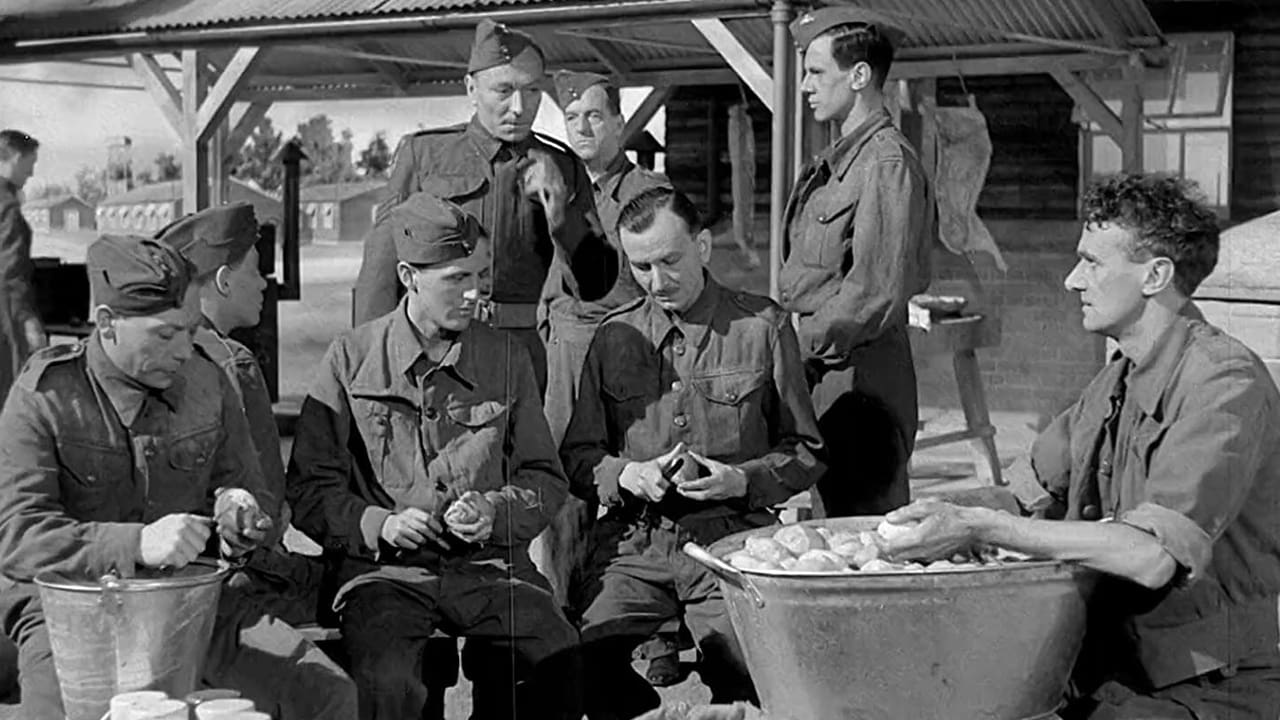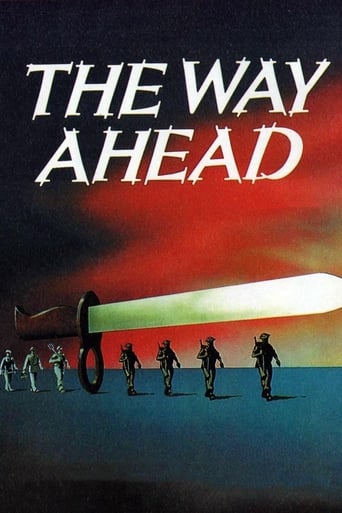



What makes it different from others?
Don't listen to the Hype. It's awful
A movie that not only functions as a solid scarefest but a razor-sharp satire.
View MoreAn old-fashioned movie made with new-fashioned finesse.
View MoreThere's a very long setup in The Way Ahead, and while I understand that it's necessary, I wish I had known about it beforehand. This is a pretty heavy war drama, and the first half of the film is spent getting to know the characters of the soldiers, establishing the relationship between the regiment and their commanding officer, and their training to prepare for battle. Those three elements are very important to the story, and perhaps given this warning you'll have more patience with the film than I did. I thought it was going to be a battlefield movie; I'm sure I'll appreciate the film much more the second time around.David Niven plays the commanding lieutenant, and for the first half of the film, he continually clashes with his troops. They badmouth him, refuse to cooperate, and begrudge his trying to get them into shape and ready for WW2. There's a very touching scene when they finally realize Niven is just as human as they are, and from that point on, they all get along. What conflict is left to further the second half of the film, if everyone likes each other? World War Two!This turns out to be a pretty tense war drama, and the very applicable title will make more sense to you after you watch it. My advice is to be prepared for an emotional investment that may or may not pay off in the long haul. It'll take a while, but you'll get immersed in the characters and their world, and when the movie's over you'll probably feel drained. WWII lovers are going to want to add this one to their lists.
View MoreThe threat of World War II hangs heavy and British civilians are called to basic military training in preparation for combat. Here we follow a very mixed bunch of men indeed, coming from all walks of life and divided by the class system, these men refuse to embrace the army way of life. As the training moves on and the men start to learn their craft, it becomes apparent that they are soon to see action, and sure enough these odd assortment of soldiers are called to finally prove their worth, not only as soldiers, but also as men of equal stature.Essentially a story of how war doesn't discriminate against the classes, Carol Reed's The Way Ahead boasts a fine cast on form and a script of character driven intelligence. Acting as a sort of call to arms to a country under pressure, the picture however now looks incredibly dated unless one can comprehend the time frame the picture deals with. It's well crafted {to be expected with Carol Reed in the directors chair}, and the last quarter, where the walls literally do come tumbling down, is octane effective and closes the film with triumphant might.Enjoyable picture for sure, but really not one to seek out at regular intervals. 6.5/10
View MoreUbercommando compares 'J Wayne and H Bogart' unfavourably with the cast of this film who were actually serving in the British forces. Well, what about Clark Gable, James Stewart, Tyrone Power, Alan Ladd, Robert Ryan...there is a long list of top American stars who saw active service. On the other hand many British stars saw fit to stick with the acting. To suggest that, in general, American actors were shirkers while the British were sterling fellows is offensive and untrue. It's also worth pointing out that many actors who wanted to join up were specifically asked not to on the basis their propaganda value was greater than their value as individual servicemen, so we shouldn't rush to judgment (and those of us born after the war have no business making judgments anyway.) As to the film, I found it an engrossing account of how men are turned into soldiers. It has much in common with the early episodes of Band of Brothers, although naturally it did not dwell on the horrors of war; after all, the war was still going on and they didn't want to send potential recruits running for the hills. I recommend it warmly but recognize that it will have little appeal for a lot of people.
View MoreAlthough it may appear simplistic to divide the work of great artists into three distinct periods, there can be no escaping the fact that this tidy and convenient way of classification actually works for the majority. In the case of the most significant British director of the immediate post World War II years, Carol Reed, the chronological view works surprisingly well. There is the fairly anonymous early period up to "The Way Ahead" of 1944, a glorious middle period from "Odd Man Out" to "Outcast of the Islands" - the subsequent "The Man Between" and "A Kid for Two Farthings", although less successful, belong to this period because of their stylistic affinity - and a third period where Reed reverted to anonymity possibly through the pressures of commercialism - how else to explain works as dull as "The Agony and the Ecstasy" and "The Running Man", which do not even look like Reed films. Certainly none of the other films in the first period compare with the sheer enjoyment and confidence of "The Way Ahead". Here the youngish director flexes his muscles, a little parochially perhaps, before taking centre stage with the great directors of that time, De Sica, Rossellini, Welles and Wyler. Technically the film is astonishingly assured. Every shot is lovingly composed with figures always formally balanced within each frame. The editing is nothing short of brilliant. It is only in retrospect and with the advantage of several showings that one realises that the excitement and immediacy of a scene such as the torpedoing of the troopship are entirely achieved by the skill of montage. In every sense "The Way Ahead" is immeasurably superior to the Lean/Coward naval counterpart "In Which We Serve" which parades class distinctions in a way that is positively nauseous. There is nothing patronising in Reed's presentation of a group of men drawn together by the accident of war. Although they come from different social backgrounds, Reed presents them as conditioned by their varied forms of employment rather than being pigeonholed by class. "The Way Ahead" is that very unusual thing, a completely upbeat war film. I suppose it had to be, given its date - 1944. With the scent of victory about to be achieved it had to be an optimistic morale booster. However it goes very much further than any other I know in presenting a completely sanitised war. Not a single character is killed let alone wounded - and this even after the ship carrying the bulk of the cast is blown to smithereens just seconds after the captain leaves. The film ends with the men attaching bayonets to rifles before marching forward into a desert attack. By now we are conditioned into thinking they will all survive although we will never have a way of really knowing. Not that it matters at this stage. So sit back, relax and enjoy as lovely a war as you are ever likely to experience.
View More